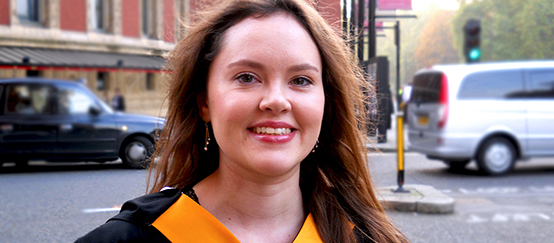 The Gold Medal Viva is an annual competition organised by the University of London, which invites the capital’s top students to take part, having been nominated by their medical schools based on exceptional academic performance. The doctors-to-be face a panel of examiners who test their on-the-spot knowledge of key areas to determine an overall winner, alongside a runner-up who claims the Betuel Prize.
The Gold Medal Viva is an annual competition organised by the University of London, which invites the capital’s top students to take part, having been nominated by their medical schools based on exceptional academic performance. The doctors-to-be face a panel of examiners who test their on-the-spot knowledge of key areas to determine an overall winner, alongside a runner-up who claims the Betuel Prize.
This year we were delighted to see both accolades go to two of our own medical students, who share their experiences of the competition, and of life at Imperial.
Amy Mallorie – University of London Gold Medal Viva winner 2014
Being nominated for the University of London Gold Medal viva for medicine was an immensely proud moment for me, with the chance to represent Imperial College in a competition previously won by Sir Alexander Fleming. (He was awarded the 1908 Gold Medal, whilst studying at St Mary’s Hospital in Paddington).
In early July I took part in the viva alongside the top 1% of final year students across all London medical schools. The viva was challenging, involving intense questioning on medicine, surgery, clinical sciences, clinical pharmacology, obstetrics and gynaecology, and paediatrics. The questions were difficult, and I remember the first of the viva being the most nerve-racking; I was given a clinical case of a young woman with a post-operative seizure and asked for differentials. I had to draw together knowledge from several different areas to answer, which Imperial finals had prepared me well for.
I recently completed the 6 year undergraduate MBBS/BSc programme. During my time at Imperial I have been particularly inspired by all the incredible teams of healthcare professionals and excellent teachers I have worked with on clinical attachments. Through doing an Intercalated BSc in Cardiovascular Sciences I became interested in research, which further motivated me.
Winning the gold medal was surprising, as well as a huge honour, and it has been a lovely way to end my time at Imperial’s School of Medicine. My next step will be starting the Academic Foundation Programme as an F1 junior doctor this August. The academic part of my foundation programme will involve a nuclear medicine research project during F2. Looking forward, I aspire to a career in academic medicine or radiology.
Anthony Dorr – Betuel Prize winner 2014
My route into medicine was more protracted than most, and took several attempts! My time at Imperial College started with my PhD and this was incredibly productive and rewarding. However, it was clear that I wanted to practice medicine. Staying on to study on the graduate medicine programme was the obvious choice, as the course emphasises the basic medical science that underpins clinical practice. Again, my learning was well facilitated both on and off the wards, and I thoroughly enjoyed it. Since my main driving force throughout medical school was to simply reach qualification, it was quite a surprise and privilege to be invited to participate in the Gold Medal Viva.
The breadth of knowledge required to excel in the viva is an important factor and I was concerned that my lack of knowledge of certain specialties would hinder me. The examiners were extremely amiable and the exam felt more like a friendly chat, albeit about clinical scenarios covering medicine, surgery and specialties. With regards to these, attempting to draw on knowledge from up to two years ago was particularly daunting when put on the spot. However, as vivas form an important part of assessment at Imperial, I had at least a robust method to use when formulating an answer.
I am delighted to have been awarded the Betuel Prize, and it is a great way to conclude studying at Imperial, especially being a part of Imperial’s double success with Amy winning the Gold Medal. I am now looking forward to finally practicing medicine after eleven years of being a student, but I would not have made without my wife and family. It is hard to say what the future holds, but I have been lucky enough to be accepted on to an Academic Foundation Programme at St. Thomas’ in respiratory medicine, and I am relishing the opportunity to combine clinical medicine with my research interests.